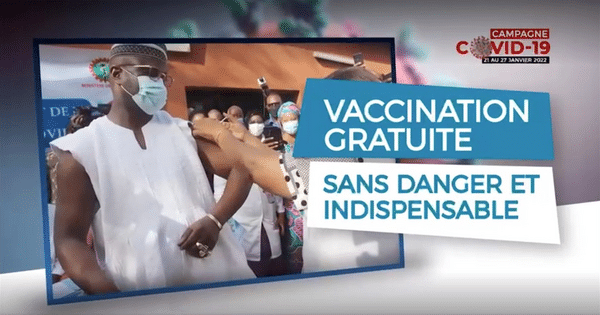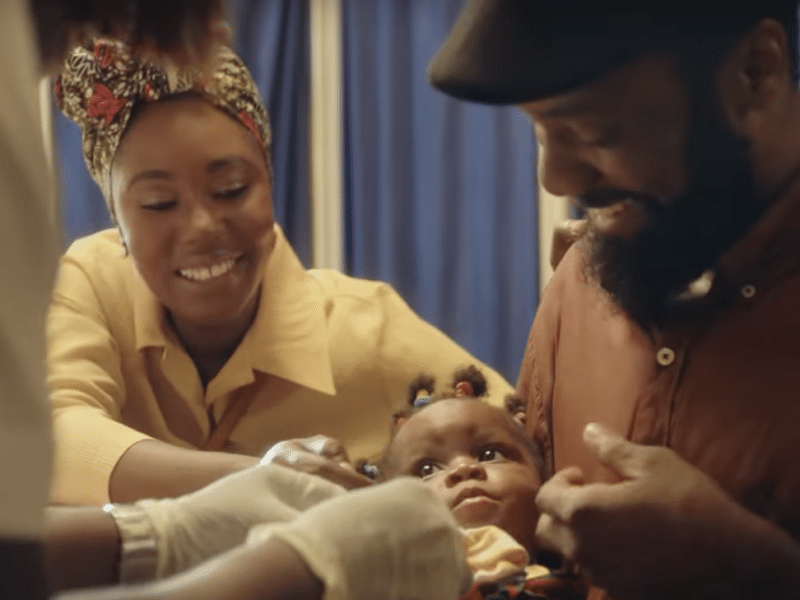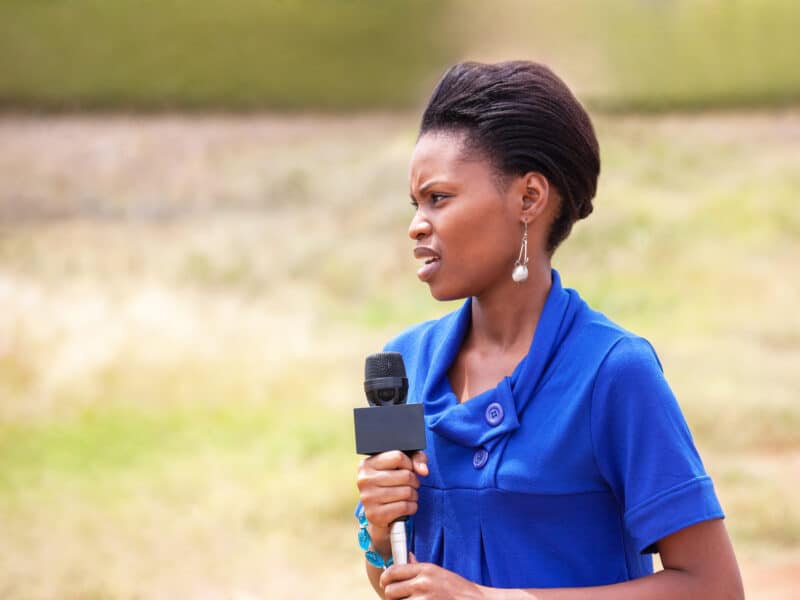In December, the Johns Hopkins Center for Communication Programs-led Breakthrough ACTION project conducted a quick survey of more than 2,000 people in Burkina Faso to learn about whether they intended to get a COVID-19 vaccine.
A month later, the results were gathered and analyzed and revealed that 83 percent of those surveyed plan to get vaccinated. Not only that, before January was over, the Breakthrough ACTION team worked with the Ministry of Health to create TV spots to help overcome obstacles to vaccination that were identified by the research and other data.
In this west African nation of more than 20 million people, where just 5.6 percent of the population have been fully vaccinated, one in three survey respondents said they believe there is a major obstacle to getting a vaccine. These barriers include misperceptions that the vaccine is expensive (getting it is free) or that the vaccine is not locally available.
By using interactive voice response (IVR) technology on mobile phones – in which callers to a national hotline were asked 14 questions about their COVID experiences, beliefs and behaviors and their responses recorded – CCP was able to rapidly assess attitudes and knowledge about the COVID-19 virus and vaccine, far more quickly than using more traditional and more time-consuming research methods. The snapshot provided a valuable measure of COVID-19 sentiments, important during the pandemic because of the speed at which people’s feelings and beliefs change.
“Interactive voice technology is a great tool to have in the toolbox to help reach large numbers of people and enable policymakers to make the kind of fast decisions necessary in the context of a pandemic,” says CCP’s Albert Casella, MDP, a research officer who worked with Breakthrough ACTION partner Viamo on the survey. “Research can take a lot of time, but when it comes to changing behaviors around COVID, there is an urgency to being able to understand what the population is thinking in a given moment.”
Those respondents who said they believed in the efficacy of COVID-19 vaccines were twice as likely as others to say they would be vaccinated, and those who perceived at least one major obstacle to vaccination were about half as likely, compared to others, to say they would.
Of those Burkinabés who said they do not intend to get vaccinated, nearly 36 percent cited concerns about safety of the vaccines, and more than 14 percent said they wanted to take a wait-and-see approach to see how well others fared after getting them.
Interestingly, more than 90 percent of respondents agreed with both of these statements: “The vaccine against COVID-19 is effective at preventing a severe case or death” and “Local medicines are just as effective as the vaccine for preventing COVID-19.”
Once armed with the data from the IVR survey, the Breakthrough ACTION team helped the ministry develop TV ads highlighting the fact that vaccines are free and how and when people can be vaccinated. The ads tell people that they can get information about COVID-19 vaccines by going to the nearest health center or calling a hotline.
The videos show prominent local leaders receiving their shots, with groups of people gathered around to show that getting vaccinated is a social norm. All of these pieces taken together are designed to help convince more people to get their doses, researchers hope.
Casella says a follow-up survey will be done this summer in Burkina Faso. The aim is to see whether more people are being vaccinated and what other barriers may be in the way of vaccination at that next moment in time.
While IVR was successfully used to gather this data, Casella says it is not ideal in every situation. Since only 40 percent of Burkinabés have cell phone access, the data is skewed toward those who have it – which in this case tends to be men, young people and those in more urban areas. Also, the survey reached those who called into the national 3-2-1 hotline and opted to take it. Casella says he is looking into ways to have the survey reach out to respondents to create a more representative sample.
A common challenge in mobile data collection is that people tend to quit surveys after answering a few questions. To encourage people to complete the survey – conducted in French and four local languages – those who answered all the questions were given free mobile phone minutes.
The survey results have proven invaluable to those committed to reducing the spread of COVID-19 in the country. “All of the stakeholders working to promote the COVID-19 vaccine in Burkina Faso welcomed the results of the survey, because the country did not have up-to-date information on people’s perceptions of COVID vaccination,” says Nourou-Dhine Salouka, Breakthrough ACTION’s country representative in Burkina Faso. “The results allowed them to better understand people’s fears and misgivings in order to provide reassuring answers.”





